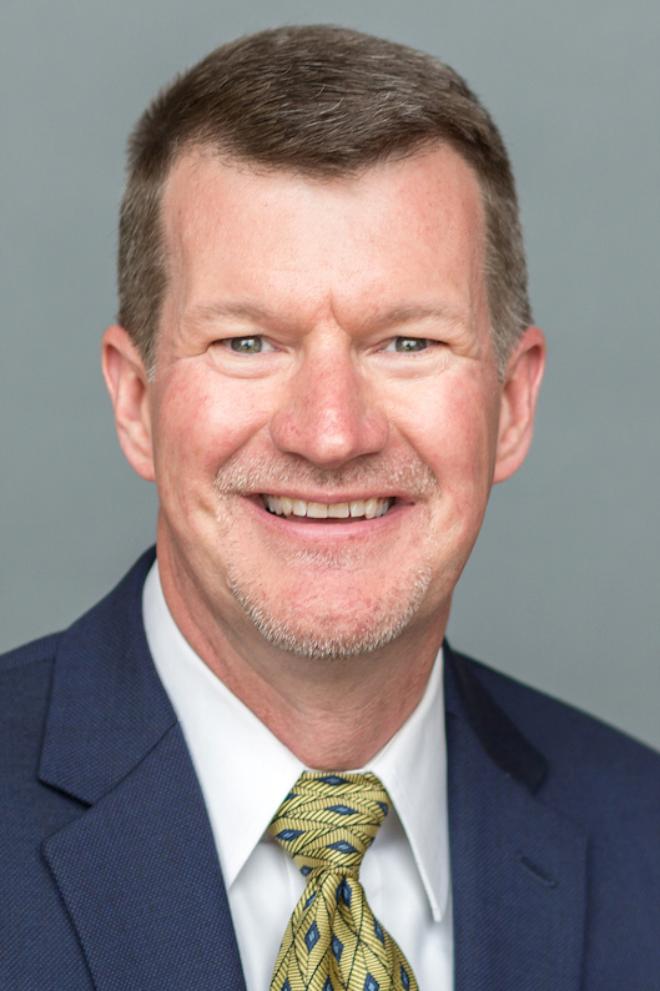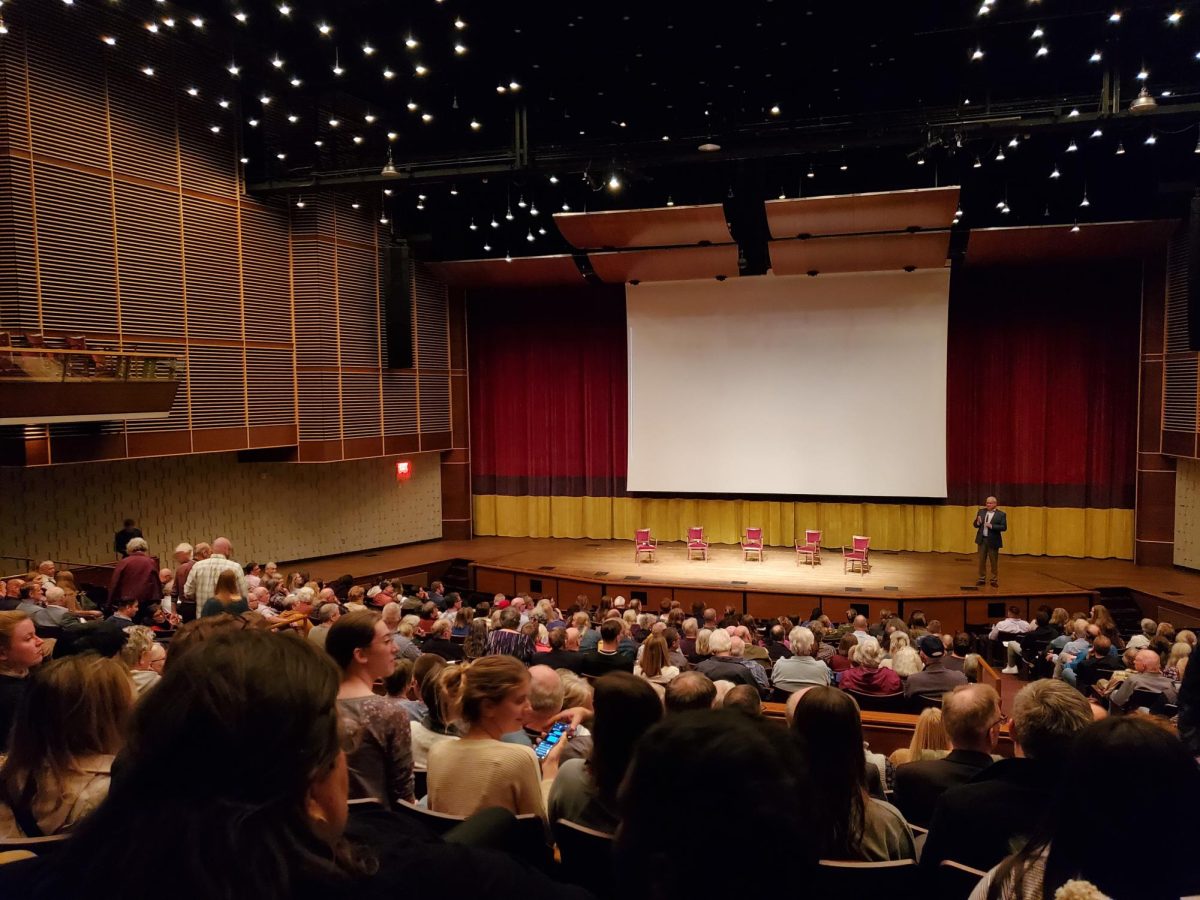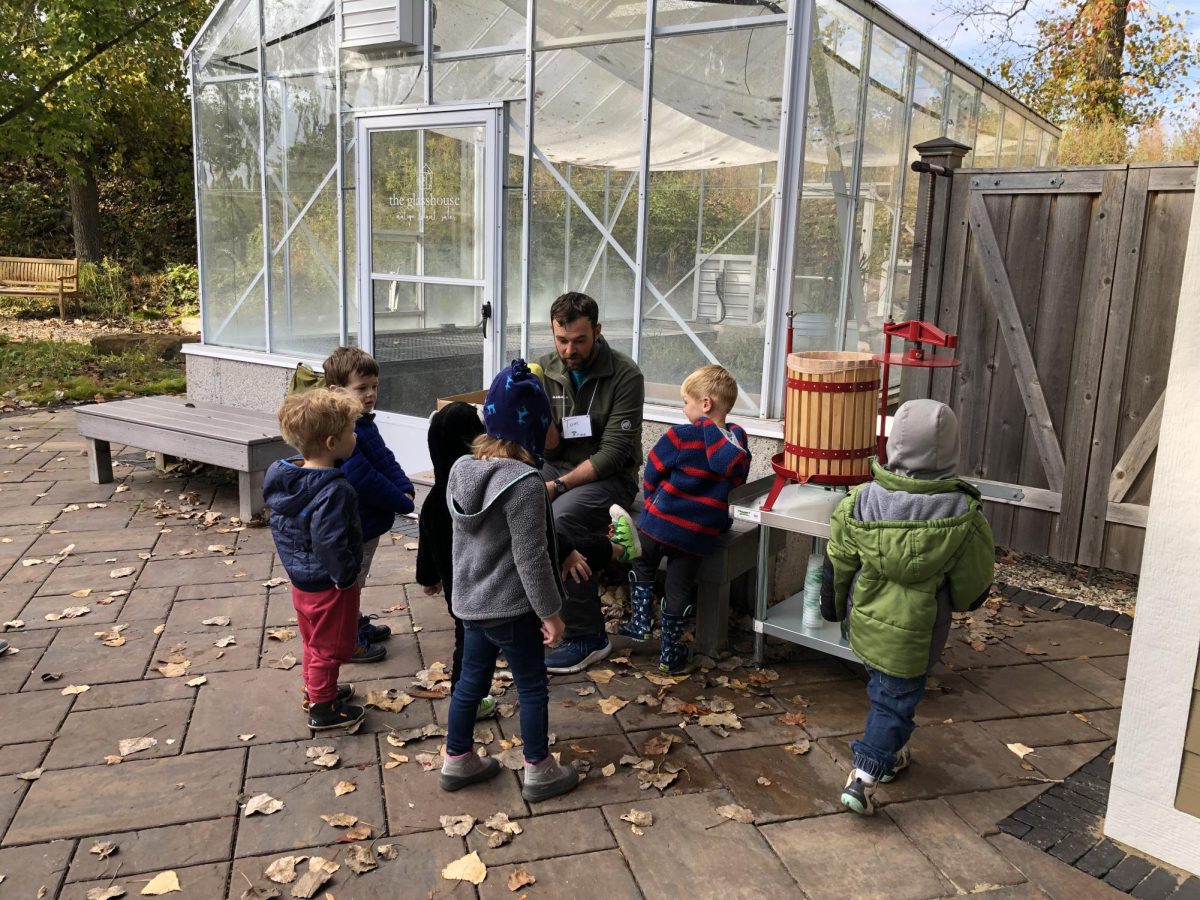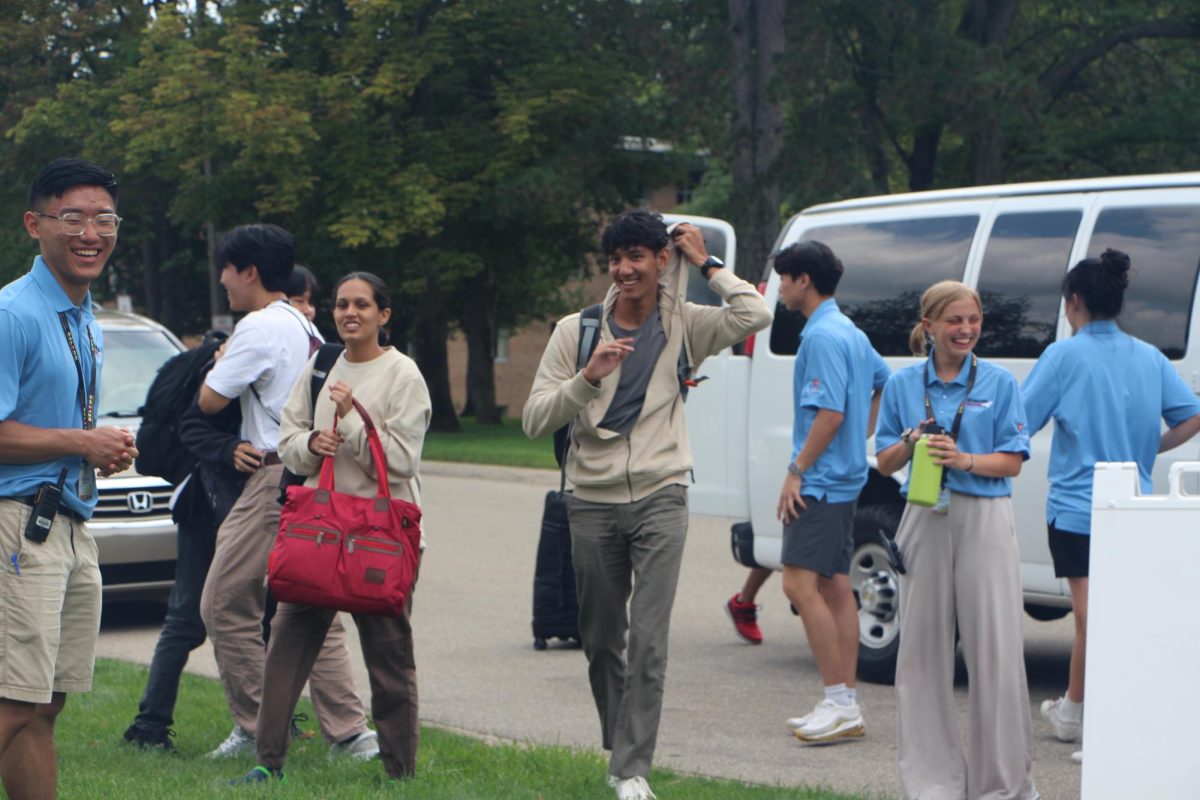Over 10 percent of the student body here at Calvin is considered international, and in many cases, the struggles of the international student are often overlooked. A lack of intentional dialogue and cultural differences has isolated dozens of international students from successfully integrating with the rest of the student body. Consequentially, many of their worries are contained within the confines of the international student community and in the groups that they form during International Passport. In this feature, 11 international students share their experiences, struggles and lessons learned throughout their journey at Calvin. These stories seek both to reach out to American students at Calvin, as well as to other international students. Representing twelve countries stretching across four continents, the stories of these students echo those of the 425 international students at Calvin. Far from home, in a new and unknown environment, these students seek to explain the challenges they face and address the many issues that often divide the internationals from the americans.
Read their stories below:
Jonathan Eigege | Ana Barahona | Jedidiah Bell | Sarah Harefa
Charlotte Reynolds | Amanda Nelson | Grace Kim | Patrick Hess
Khushboo Gulabrai | Daniel Feng | Sangwoo Kim

Jonathan Eigege
Senior, Nigeria
“It seems like you are a natural leader. You’re going to do well here.”
Those were some of the first words I heard after setting foot at Calvin. I’m not
going to pretend that I didn’t like hearing those words. I’d always been a “leader,” especially since, in high school, not having stage fright and being able to speak to parents was considered leadership. It was great to hear that there were people, on this campus and on this side of the Atlantic, who felt like I could lead them.
It got to my head. Less than a week later, I was applying to be a student senator, had picked up a form to start a new student org and was applying for every “leadership” position that a freshman could hold on campus.
I wish someone had told me to slow down – mostly because all of those opportunities were granted me. The responsibility that was associated with the leadership that had been dropped into my lap was too immense for a freshman who didn’t even have a solid understanding of who he was. I became that person who did so many things, but none of them really well. Thankfully, I was surrounded by awesome international upperclassmen who poured into me and cleaned up my very rough edges. They encouraged me to focus on what I was good at and flourish there.
The truth is that I came to Calvin with a whack idea of what leadership was. Most of us do because we still operate with the “impress a college” mentality! For most of us, as we begin college, we see leadership as a means to the ends of making ourselves look more rad. For that reason, when people tell us we are leaders, we hear them saying they think we are so phenomenal that no one else deserves to be in those roles than who we are. That’s not what they’re saying.
Leadership is not about being; it is about doing. I’ve come to learn that leadership is about setting others up to succeed. When someone tells you that you’re a leader, they’re telling you that they trust you to have their back. The value of your leadership will always be measured by how much of it was leveraged for others.

Ana Barahona
Junior, Honduras
For those of you who’ve had the opportunity to study abroad, you know what an enriching and challenging experience it is to be in a foreign country for an extended period of time. After four months of new foods, new language, countless instances of culture shock and a few meltdowns, you (hopefully) experience so much growth that you come back a different person. Now imagine signing up for it without fellow Calvin students and professors and doing it not for one semester but for your entire college career. That’s exactly what I have been doing for the past three years.
Looking back, I’m always amused at my high school self who was so excited about this unbelievable opportunity (according to the U.S. embassy in Honduras, I am part of the 0.016 percent of the population who has the privilege of studying in a North American university) because, although I wasn’t expecting it to be easy, my imagination had not fully accounted for what was to come. I won’t go into a rant about the added layer of complexity that international students have to deal with (parting with family, language barriers, transportation issues, finding internships, visa implications and complications) but I will tell you that international students (as well as their families) make huge sacrifices to be here.
Yet despite all the challenges, I am ever so grateful for the way being an international student at Calvin has shaped me: it has broadened my worldview, strengthened my faith and even made my life so much more fun. So to all of those who’ve shown me generosity and unexpected kindness, who’ve included me as a part of their family, who’ve blessed my stay here and made me feel a little less foreign, I want to say thank you. And if you’ve never had the privilege of feeling foreign yourself, I recommend you try it sometime. You’ll be surprised at how much you’ll grow!

Jedidiah Bell
Senior, Zimbabwe
When I first arrived in the U.S.A. at Calvin, I was incredibly excited to start life afresh in a new place. I was the freshman who was excited to sit down with random strangers at Commons for every meal, the one who tried to engage all those around me in conversation before each class. I even started a weekly tea party to further develop these friendships. As the semester progressed, however, I realized that as a white Zimbabwean, my identity was mistaken. I looked like the typical Dutch American and even if I talked a tad funny, I was just constantly mistaken for being either a missionary kid from Africa or a random Australian chap. The questions I received were the same: “From Africa? … How are you white? But, where are you really from?”
As I struggled to find understanding and connection, I pulled back from building American connections and retreated to the international community. Even if they didn’t all struggle with mistaken identities, we shared a similar background in our differences and our struggles to adjust to a new place. Even though I formed a solid relationship with my freshman Minnesotan roommate, I didn’t begin to build strong connections with other Americans until my upperclassmen years.
My junior year began with a slow (and continuing!) realization that I was as guilty of the same assumptions which fuelled some of the American attitudes toward me – attitudes which had made me uncomfortable for two years. Now, I’m learning to engage with others in a way that does not deny my own past or brush aside theirs. Relationships, I’m learning, and particularly cross-cultural ones, require a reciprocal adjustment and understanding of different expectations of how to connect and engage with each other.

Sarah Harefa
Junior, Indonesia
“Remember your roots and never stop growing, wherever it is you’re planted,” my father said as we parted. Both my parents were trying to hold back their tears and I was trying to hold back my smile. Finally, thousand of miles apart from my parents control, I’m free to live my life! The excitement, however, only lasted until that silent winter night.
Every international student knows of this night. You start to imagine the familiar sun, the safe embrace of your family and that one dish your mother cooks outstandingly. Best remedy to this condition? Being surrounded by a supportive community that you can relate to. And my community, surprise surprise, is the international student community, specifically those who came from the same country as I do and can help me (try) to cook my mother’s dish.
I think this is the biggest reason to why international student seems very exclusive. It is easier for us to befriend people who grew up in the same context as we do because it requires less effort. Coming from a “Third Culture Kid” background, I know that this is a problem every community will face in the rise of globalization. There can be so much diversity with zero integration. Calvin has done a lot in improving its global awareness, but I have yet to see cultural integration in most student lives.
The community we dream Calvin could have relies heavily on our own hands, both the international students and the rest of the student body. It requires effort, time and sometimes failures that give us a much-needed reality check. It will start slow, from the International Food Festival and Rangeela to class projects about different countries, but surely it will not stop. As my dad said, “Never stop growing.”

Charlotte Reynolds
Junior, United Kingdom
Being an international student from the U.K., you wouldn’t expect language to be a challenge I would have faced when moving to the United States. I mean, I speak English and so do Americans! But language difference was actually one of the biggest challenges I had to deal with when I came to Calvin. I was very aware that American English had various alternatives and pronunciations to certain words in British English – anyone would know this just from watching a British film. But I didn’t realize the extent to which this would affect my daily conversations. Working in the dining hall my freshman year and saying things like “cutlery” and “bin,” instead of “silverware” and “trash can,” proved to slow down conversations a little, though it didn’t take long to get used to which words to use and when.
What I hadn’t fully anticipated were the many questions and jokes that were to come after saying something differently, not to mention the imitations of my accent I was often faced with when meeting someone for the first time. Requests for me to say certain things “in my accent” were not uncommon, and all of these were things that, as a freshman, I would get frustrated with. I became tired of the same conversations; I felt like a novelty rather than a person.
But over the past three years I have been at Calvin, I’ve learned to embrace these opportunities! I’ve realized that these conversations are a great time to be able to tell people about my culture and answer questions that people have, simply because they are interested in learning more about where I grew up. Sure, after the fifth time someone asks, “Can you say…?”, I’m likely to steer the conversation in a different direction, but viewing these interactions as a time to discuss and compare cultures has made me value them highly and they are no longer a source of huge frustration. There’s a lot we can learn from each other if we just stop and thoughtfully ask questions!

Amanda Nelson
Senior, Ghana
As an international student, people don’t realize that some issues that seem petty sometimes can be stressful: issues like having to calculate the appropriate time to call home (due to time differences) and having to explain dorm life to parents and siblings. With our minds constantly focused on what is happening at home, Americans may see us as always hanging in cliques. However, this is not the case. We are trying not to be homesick; talking about home with people who have been there makes us feel better . That is why I would say to an American that it is okay to ask us questions. We do not even know that much about our own homes in Ghana because we are so diverse. There is honestly no “stupid” question, because we do not even always have the answers and sometimes those questions lead us to learn ourselves.
To international students, being homesick should not stop you from experiencing the college life in full. I never actually got involved in extracurricular activities in and outside of Calvin because I was so engulfed with home and adjusting to the new environment. Even when I applied for things at the end of my sophomore year, I had to be convinced by friends to do so, but I have never regretted it. I have enjoyed the few experiences that I have been privileged to have been a part of.

Grace Kim
Senior, Dominican Republic/South Korea
“Wanna play a board game with us?”
“I guess, yeah,” I said. Then I looked at the games, which were completely new to me.
Rather than feeling excitement, I prayed that I could follow well and not look stupid.
“Hey, do you want some cookie dough ice cream?”
“Yes,” I said, not knowing what it would taste like.
“No, thanks. I’m good for now,” said my American floormate.
At that moment I realized how full I was and figured out that it was okay to say “No.”
“You always say ‘yes.’ Do you ever say ‘no’?” asked one of my American friends in my freshman year. Did I? Really? My friends back home used to joke at the fact that I’m very clear in saying “yes” and “no.” Then what made me say “yes” almost all the time in my first few months at Calvin?
I finally found the answer when I went back home that summer. It was because I did not know the culture. Growing up as a Korean missionary kid in the Dominican Republic since I was three years old, I had basically no experience of American culture (except what I had learned from the media). My “yes” was a way of showing my interest in the culture, appreciation to the invitation, and my determination to learn, even through mistakes.
My mind was always full of questions: Should I say “hi” or “hello”? How far is that “personal space”? Can I eat bagels and egg or does it need to be cream cheese? Even today I still discover more questions. But I learned that instead of just saying “yes,” I can ask my American friends. By understanding better, I was able to not only be myself but also share my cultures. Most importantly, I found a gift: the true inter-nation-al friendship.

Patrick Hess
Senior, Poland/United States/Switzerland
“How is it going?”
“Oh you know….” my words trailed away as my American friend passed me on one of Calvin’s sidewalks, too busy to stop and hear the answer to his question.
As a Swiss-American missionary kid who had the chance to interact with other Americans in the past, I knew that the expected answer was “Good,” but the international part of me still wasn’t used to giving this response. While I am American by citizenship, I spent 19 years of my life growing up in Poland. Over those 19 years, I learned that if a Polish person asked you, “How is it going?” it was not a greeting but a genuine inquiry into the state of your life. And because of this an answer along the lines of “Good,” “Great,” or “Fine” would be seen as weird.
Over my last four years at Calvin, I have been part of this awkward situation multiple times and have slowly adjusted my answers to match people’s expectations. I have realized that what I thought was a genuine question, in fact is just a friendly greeting. I no longer attempt to give people a real answer as to how I am doing, instead I just settle for “Good” and move on.
Nevertheless, from time to time, I still catch myself wanting to give a genuine answer to this friendly American greeting.

Khushboo Gulabrai
Senior, South Korea/Singapore/India
After my seven alarms went off, I would wake up with 10 minutes to spare to get to my 9 a.m. class. When I returned later in the day, I was exhausted, grumpy and hangry. The only person who could have made me feel better, my mom, was asleep because it was 5 a.m. back home. Simultaneously, the girls on my floor were knocking on my door to go to dinner, which at that time seemed obnoxious. However, at that point I was sad and just missed home.
While it is typical to meet a lot people in your freshman year, it’s a little more overwhelming for international students because that is when we are at our lowest point. A lot of us get depressed as it gets cold and we realize that we are going to be away from home for four years, if not more. As we isolate ourselves, American students continue to make friends and form deeper relationships. Our ability to understand and accept that college is our new reality only becomes apparent in the second semester. By this time, however, American students have mostly found their group of friends, and have stopped reaching out to internationals because we turned them down so many times.
This is something that I saw in retrospect. If I had known sooner, I would have worked hard to make sure I didn’t let the separation grow between the internationals and the Americans. My hope is that American students understand the challenges and emotions we struggle with as internationals in our first semester. I also hope that international students limit the barrier they put up and stop isolating themselves.

Daniel Feng
Junior, China
My parents converted to Christianity when I was in middle school, and I got baptized in high school. However, it was not until I came to Calvin that I took my faith more seriously. When I first came to Calvin, everything was novel and wonderful. As I became a little more used to the new environment, I experienced more and more strongly of what I realized later as identity crisis. Am I an introvert or extrovert? What friend circle should I fit into? How much time should I spend on homework, socializing and working? What are my limits? What does it mean to be a good person? These questions gave me doubts about my relationships with others and God. Although I still have no idea how to answer some of the questions, God has blessed me with close friends and through them, taught me to understand myself better while having faith in him.
As international students in a small college, it might be hard find people who share the same interests. At first, it was hard for me as I struggle to learn to understand the different ways others do things. The way American students make friends, their diet, and their way of communication are all very different; it takes a long time to adjust to and understand this new life style. Even within the small Chinese community at Calvin, which has no more than 30 students, people come from very different areas and backgrounds. Some have families that have been Christians for generations, while others did not have any faith background prior coming to Calvin.
Nevertheless, God has blessed me through a few close friends. They are very devoted to their faith, and they taught me a lot about godly love through their actions. I have come to appreciate more and more of the small yet diverse Calvin community; it provides opportunities for us to get to know each other on deeper levels and appreciate the different talents we have. God taught me to truly appreciate the different images that reflect his glory.

Sangwoo Kim
Senior, South Korea
Just as many other international students in our community, soon after arriving at Calvin, the identity crisis hit me. Undoubtedly, language and culture barriers were gigantic obstacles that I had to grapple with. But, a bit more surprisingly, at the heart of my identity crisis was what I call the “nominal Christianity.”
I recall some days of my freshman year, during Quest, when I was so disappointed at sitting and talking in a classroom. I was very quiet in class, since I did not speak at all, unless it seemed necessary. Yes, I was scared to death of making myself look stupid, and I thought that my English was not good enough to be spoken publicly. However, what made me more scared and shocked was what happened through the time of sharing our personal testimony. Circling the desks and listening to each other’s words about what brought each one of us to Calvin, I vividly remember the feeling of sharp pain in my heart out of people’s indifference to each other’s faith story. Out of the 20 people in our group, at least half of them shared the similar story that sounded as if they had just copied and pasted the answer sheet, only touching on Christianity superficially. I recall the color of the air that flowed and permeated throughout our classroom during that night. It was cold and apathetic. Seeing this phenomenon, I recall that I was really in doubt about whether I was in the right place.
When I shared my own faith story, I felt as though I had been as shameful as being naked in public due to the fact that I could easily notice that many of them simply had no interest in what I was talking about. For me, this type of reaction was far more a painful experience than overtly being rejected or denied. Unfortunately, this experience left an indelible impression on me, affecting how I was going to view the Calvin community with unnecessary bias.
It was by the grace of God that it was not long before I realized that what I saw during Quest was only a small part of the whole community, and I received immeasurable blessing from the Calvin community in the following years.








